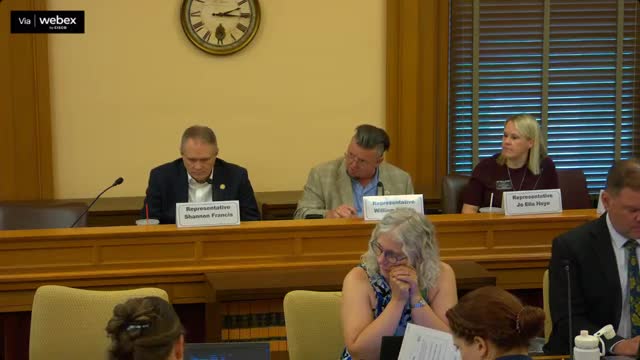Kansas DCF addresses high SNAP payment error rate and corrective action plans
April 23, 2025 | Senate, Committees, Legislative, Kansas
Thanks to Scribe from Workplace AI , all articles about Kansas are free for you to enjoy throughout 2025!

This article was created by AI using a video recording of the meeting. It summarizes the key points discussed, but for full details and context, please refer to the video of the full meeting. Link to Full Meeting
The meeting highlighted that in the fiscal year 2024, Kansas received approximately 6,205 cases for investigation, with about 50% of these cases coming through a hotline. This statistic underscores the reliance on public reporting mechanisms for identifying potential issues within the program. The committee members expressed a keen interest in understanding the number of corrective action plans (CAPs) currently in place, with DCF officials confirming that there are three CAPs specifically related to SNAP, alongside others for different programs.
A focal point of the discussion was the payment error rate, which was reported at 11.6%. This figure raised concerns among committee members, as it indicates a significant level of inaccuracies in benefit distribution. DCF representatives explained that common errors stem from miscalculations of income and rent, as well as issues related to self-employment income reporting. The committee pressed for a clearer understanding of these errors, emphasizing the need for improved training and oversight to reduce the error rate, which they aim to bring down to around 3% in the future.
The conversation also touched on the implications of these errors, particularly regarding the potential for both overpayments and underpayments to clients. Members sought clarity on how these errors are categorized and the distinction between unintentional mistakes and fraudulent activities. DCF clarified that while payment errors can occur due to administrative mistakes, fraud involves intentional violations of law.
As the meeting progressed, the committee members expressed concerns about the broader implications of these findings, particularly in light of Kansas's ranking among other states in terms of program access and efficiency. The committee noted that Kansas has struggled with staffing and training issues, which have contributed to its declining performance metrics since 2017.
In conclusion, the discussions at the oversight committee meeting underscored the urgent need for the DCF to address systemic issues within the SNAP program. With a focus on reducing error rates and improving training for eligibility workers, the committee aims to enhance the efficiency and effectiveness of food assistance programs in Kansas. The next steps will involve a thorough review of corrective action plans and ongoing monitoring of performance metrics to ensure that eligible Kansans receive the benefits they need without unnecessary delays or errors.
Converted from House Select Committee on Government Oversight 04/23/2025 meeting on April 23, 2025
Link to Full Meeting
Comments
View full meeting
This article is based on a recent meeting—watch the full video and explore the complete transcript for deeper insights into the discussion.
View full meeting